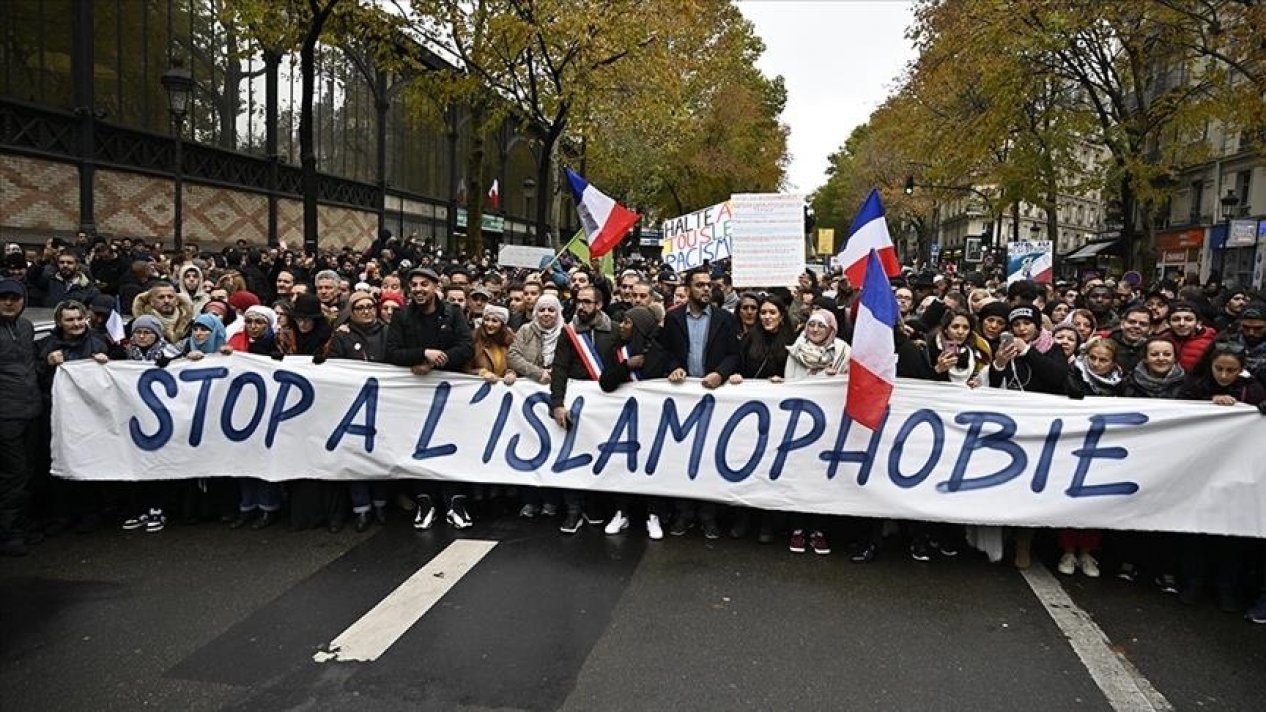
An international scientific conference themed “Embracing Diversity: Tackling Islamophobia in 2024” has ended in Baku. At the end of the two-day conference, a Joint Communiqué was adopted. The conference was dedicated to March 15 - the International Day to Combat Islamophobia, and was co-organized by the Baku International Multiculturalism Centre, Azerbaijan’s Center of Analysis of International Relations (AIR), the G20 Interfaith Dialogue Forum, and the Baku Initiative Group.
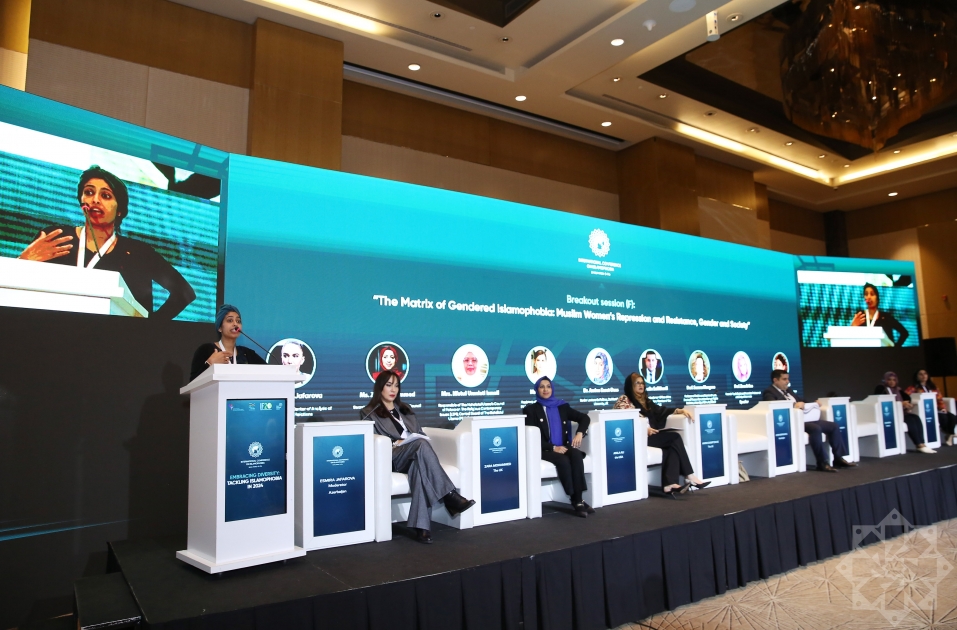
At the interim session “Anti-Muslim Policies in France: Normalizing Islamophobia”, organized as part of the international conference on combating Islamophobia taking place in Baku, Managing Director of CAGE International Muhammad Abdur Rabbani said that since 2018, the French government has established the position of a person controlling Muslims. This was followed by the closure of mosques and book houses, he noted, adding that Muslims in France are subject to harassment without the right to complain to any institution.
According to him, French government policy also includes taking action against Muslims. “There is a totalitarian political regime in France. The French government openly states that it has a dual system for citizens. One is for the French, and the other is for representatives of other nationalities,” the director noted.
The event participants noted a surge in Islamophobia in Europe, and, importantly, its intensification in France.
Faktyoxla Lab. has explored the reason for France's openly pursued policy of pressure on Muslims and their discrimination.
To begin with, for the sake of fairness, it must be emphasized that Macron did not create French Islamophobia and is not its main cause. This happened long before his first elections or the Fifth Republic itself. From the medieval crusades to Macron's current "war on Islamism", as well as the decisive centuries of imperial conquest, colonization and racist civilizing missions in Muslim-majority countries such as Algeria, Islam and Muslims have always been viewed through a predominantly medieval and colonial lens of anti-Muslim stereotypes. Emmanuel Macron was elected in May 2017 to the first of two terms on his electoral platform, promising an inclusive, open and modern liberal society in which multiculturalism - which had been a negative term in French media and politics - was reintroduced as an asset for the country.
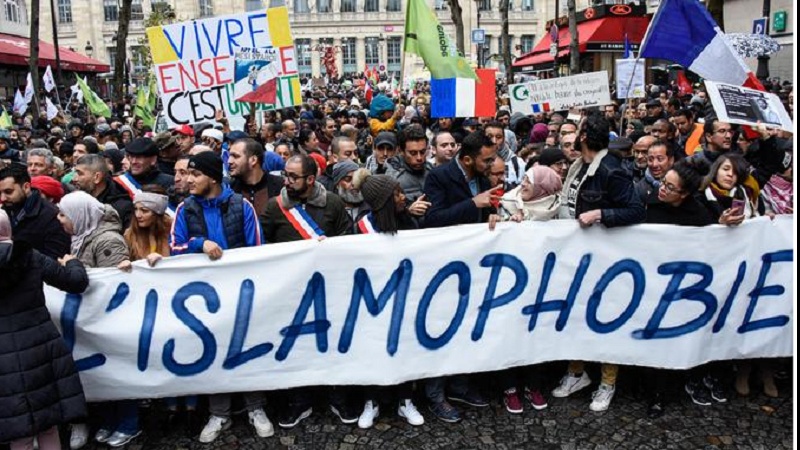
This understanding of multiculturalism was and remains fundamentally contradictory to the foundations of the French “universalist and indivisible” republic. The dominant media and politicians systematically portray multiculturalism in offensive terms. The French mainstream, including the media and politicians, believes that multiculturalism will fragment the nation and threaten normal life in France. This latter popular expression represents a largely imagined national “oneness.” It is simultaneously speculated on along with other ideological fetishes, such as “French universalism.”
The hopes of French Muslims that Macron would help create a new, more open France, at least less hostile to their religion, have not materialized, to say the least.
As experts note, during his years in power, Macron and his various governments have consistently worked to raise Islamophobia in the state and society to an unprecedented level. To sum up the consequences of his statements, actions and policies, it can be said that they not only aggravated the already serious rejection of Islam and the discrimination that accompanies it, but also raised it to the level of actual persecution of Muslims. Since 2017, Macron has worked persistently and creatively to enrich, expand and strengthen the French Islamophobic Republic. It was under Macron and as a result of his policies that French Islamophobia underwent a dramatic transformation process of extreme radicalization never before seen in the country.
Not only has it transformed the lives of French and foreign Muslims in this country, making them increasingly miserable and unlivable while leading to a veritable Muslim brain drain, but it has also caused deep damage to France itself.
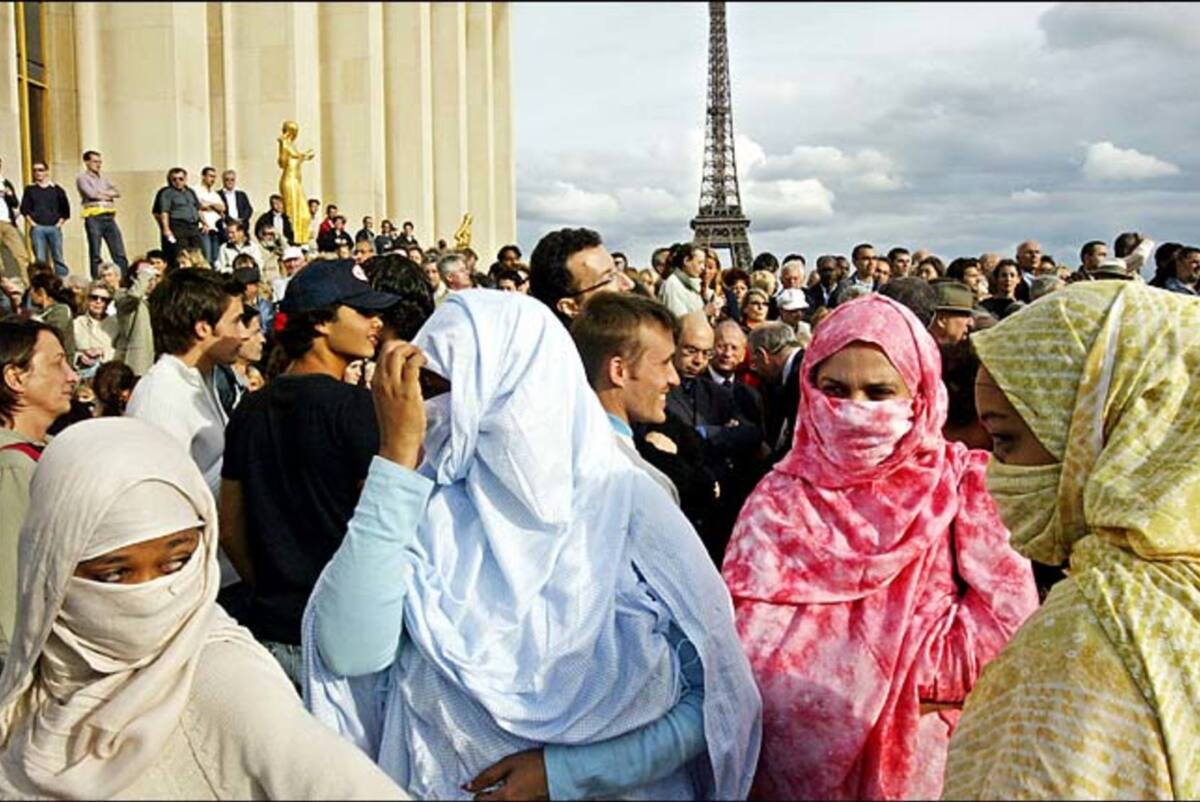
France can no longer present itself to the world as a republic of liberty, equality and fraternity, since none of these three fundamental principles of a nation are granted to its Muslim population. They are now equally stigmatized, vilified and slandered by senior French officials, the media and some academics as “leftist Islamists”, “Islamofascists”, “enemies of the state”. Government control, coercion, restrictions and suppression of religious and other freedoms are penetrating deeper and deeper, in an increasingly intrusive and controlling manner, into the private lives of Muslims. As some experts emphasize, in its relations between the state and Islam, France has now crossed the red line of criminalizing thought and religious beliefs.
For example, the most outrageous example of the criminalization of thought and increasing criticism of government policies by Muslims was the dissolution of the Collective against Islamophobia (CCIF), France's largest legal defense organization for Muslim victims of discrimination, and the Coordination against racism and Islamophobia (CRI). The “evidence” provided of “incitement to hatred and violence” as a basis for closing these organizations included the following: “cultivating suspicions of the existence of Islamophobia in French society”, use of the expression “institutionalized Islamophobia”, comparison of French military intervention in Mali, Libya and Somalia with terror attacks that occurred on French soil and much more.
The Macron government and France's parliamentary majority have launched an intensive legislative effort that has further entrenched state Islamophobia within the French legal and judicial system itself. This includes the so-called law against “Islamist separatism” passed in August 2021 (later renamed the “Respect for the Principles of the Republic Law”), almost all of whose numerous articles are aimed at Muslims.
Researchers identify two key moments when Islamophobia received new impetus. The first was Macron’s speech on October 8, 2019 against the “Islamist hydra.” In this speech, Macron stated that all the forces of the state will not be enough to defeat this many-headed monster, but that it is up to the entire nation, which must unite, mobilize and be ready to act in order to create a “vigilant society” in which, according to the ideal Orwellian logic, everyone should be on the lookout for any signs of people at risk of being influenced by “Islamist networks.” The second is the infamous Mureau speech of October 2, 2020 against “Islamist separatism,” which soon led to the adoption of the founding law on August 24, 2021.
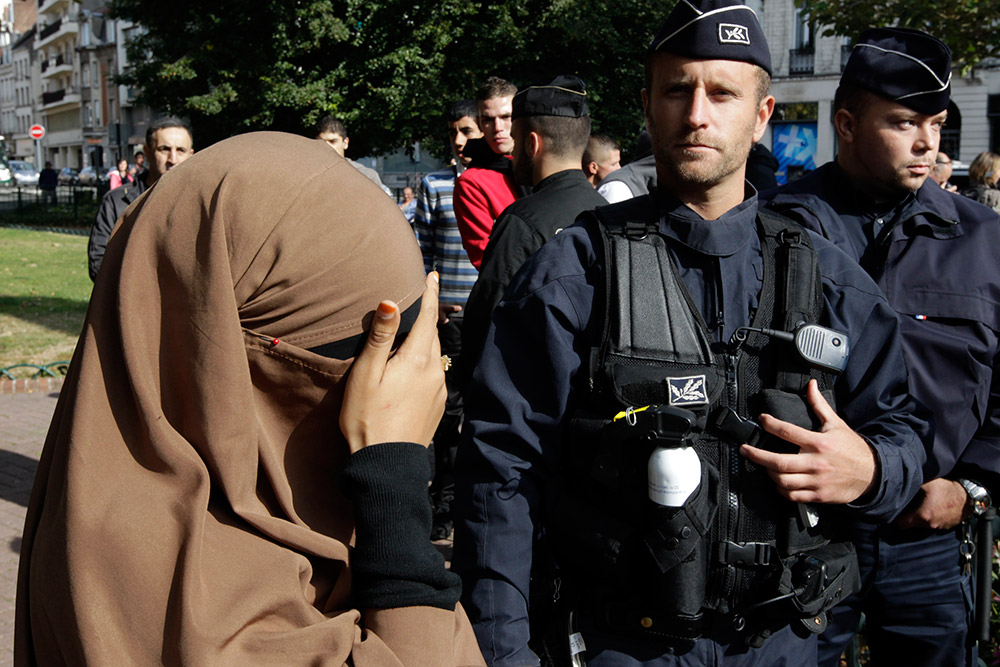
Thus, what began as a war on terrorism became and expanded into a war against “Islamism” or simply “political Islam.” In this context, any sign of Islamic religiosity and faith, including simple prayer, fasting during Ramadan or wearing the hijab, any civic activity on the part of Muslims is immediately perceived, defined and treated by state authorities as an existential threat.
Since 2019, Macron has patiently and methodically weaponized the entire state apparatus, including its core ideological principles. According to experts, this Macron project, called Systematic Obstruction Policy (SOP), was first revealed and analyzed in the CAGE-UK report. The report documents how, in just four years, thousands of Islamic institutions of all kinds - mosques, schools, associations, clubs, bookstores, charities, human rights organizations, private businesses, etc. - were attacked and often closed down by simple executive or administrative actions with rulings on the sole charge that they were "Islamist" or "separatist".
Under Macron, Muslims in France are actively and methodically persecuted by the state itself. American media write that separatist discourse and policies in France threaten the future of French universalism. Describing Islam as a religion that is “in crisis throughout the world,” Macron said they want to create an “Islam of enlightenment,” which also sparked an outcry in the Muslim world.
Experts point out that in fact, France's desire to find common ground between all the different ethnic and religious elements in the country within the framework of a national identity that they themselves have formulated is not a move only against Muslims in the country. This process, which negatively affects the black and yellow races, Jews and Muslims, as well as all other minorities, is moving France in a very dangerous direction.
And today we have to admit the fact that little has changed in France, despite mild criticism from the Anglo-Saxon media, as well as harsh statements made from a number of Muslim countries led by Türkiye. In fact, during these discussions, when asked by a L'Express correspondent, “Do you think that being a white man is a privilege?”, Macron replied that “It is a fact. We don't choose it; I didn't choose it. I note that in our society, being a white person creates objective conditions in which it is easier for me to access work, to find housing, to find a job, than to be Asian, black or Maghrebi. In this sense, being a white person can be perceived as a privilege.” His comments took the discussion to another level.
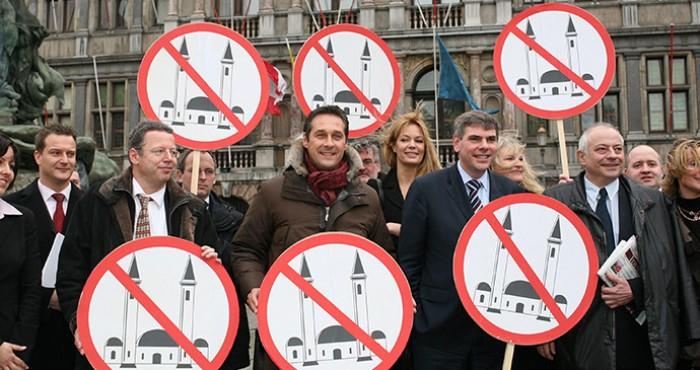
In today's France, the restoration of national identity in a secular republic must indeed be considered a luxury. Recognizing the possible negative turn of events in the future, the idea of white privilege was sure to be accepted by French leaders to at least show their support to the French people, and this would set in motion events that would make it incredibly difficult for France to recover.
The EU parliamentary elections in 2024 are likely to lead to an increase in Islamophobia within the institution, which poses significant risks for European Muslims.
The growing discrimination faced by European Muslims looks set to be reflected in EU parliamentary elections in June. The double threat of the rise of the far right, coupled with the impact it has on mainstream parties, is heightening concerns about the normalization of Islamophobia in Brussels.
This is not the only alarming trend. Along with the rise of Islamophobia, there is a clear lack of representation of European Muslims in EU institutions, a fact that only worsens the community's vulnerability to such discriminatory narratives. The focus on anti-Islamic narratives comes at a time when the far right are at their most powerful in decades across Europe. While far-right parties once represented a radical fringe in European politics, they now directly influence national debates and discussions, and some even directly govern. In addition to governing in many European states, far-right opposition parties in other countries influence the policies of ruling parties. Perhaps the most striking example is the administration of Emmanuel Macron in France.
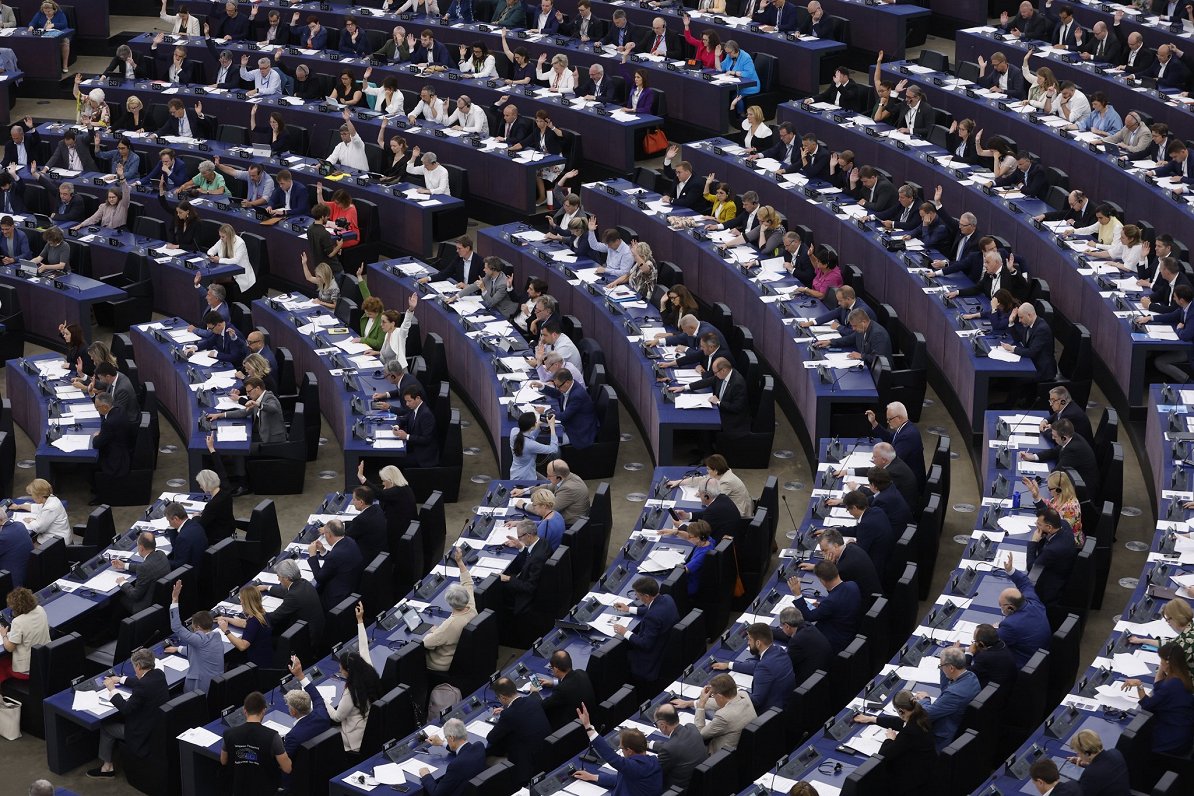
Again, it is noted that Macron's attitude towards France's Islamic community has changed dramatically in recent years. In 2017, Macron's election platform promised an "inclusive, open and modern liberal society" in which multiculturalism was "presented as an asset" for France. However, by 2024 it is noted that Macron's "discourses, actions and policies" have led to a "true persecution of Muslims". Various observers have pointed out how Macron, under political pressure from the ever-growing popularity of the far-right Liberation Rally, has adopted increasingly Islamophobic political positions.
Given the shift demonstrated by Macron in France, there are understandable concerns that a greater presence of the far right in the EU after 2024 could have a similar effect at the European level.
With the threat and influence of Islamophobia within the parliament on the rise, the question arises as to how Muslims can respond to such a risk. A quick glance at the current makeup of the Parliament underlines a key issue – an almost complete lack of Muslim representation within this institution.
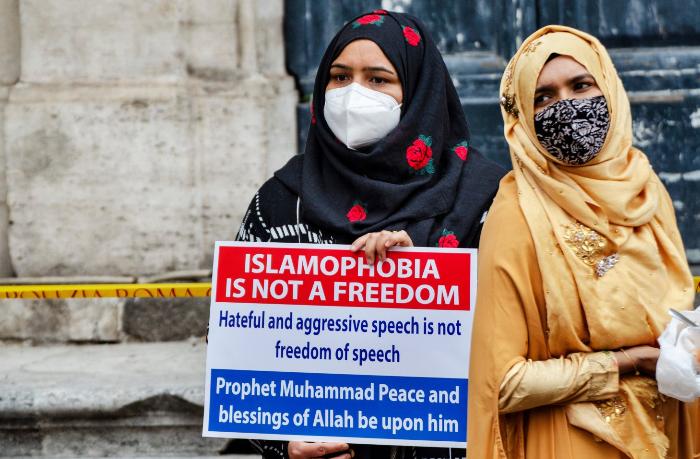
Although there are over 20 million Muslims living within the European Union, it would appear that there is currently not a single openly Muslim MEP. The EU does not officially collect statistics on its parliamentarian’s race or religion. However, in 2019, Euronews reported that Brexit would see the dismissal of the three British Muslim MEPs from Parliament. German Muslim politician Maha Walter-Kamano states this lack of representation is a result of mainstream parties choosing to look the other way when it came to issues faced by the community, rather than seek to engage with Muslims.
But be that as it may, today French anti-Islamic tags include threats such as “France for the French” and “Your coffins or your suitcases.” Moreover, some far-right supporters in France promote Islamophobic arguments that Muslims are “invading France.”
Conclusion:
As a result of Macron's policies, Muslim communities are now subject to various racist attacks in many French cities, including offensive comments on social media and acts of vandalism or sabotage targeting mosques, cemeteries and businesses run by Muslims.




















